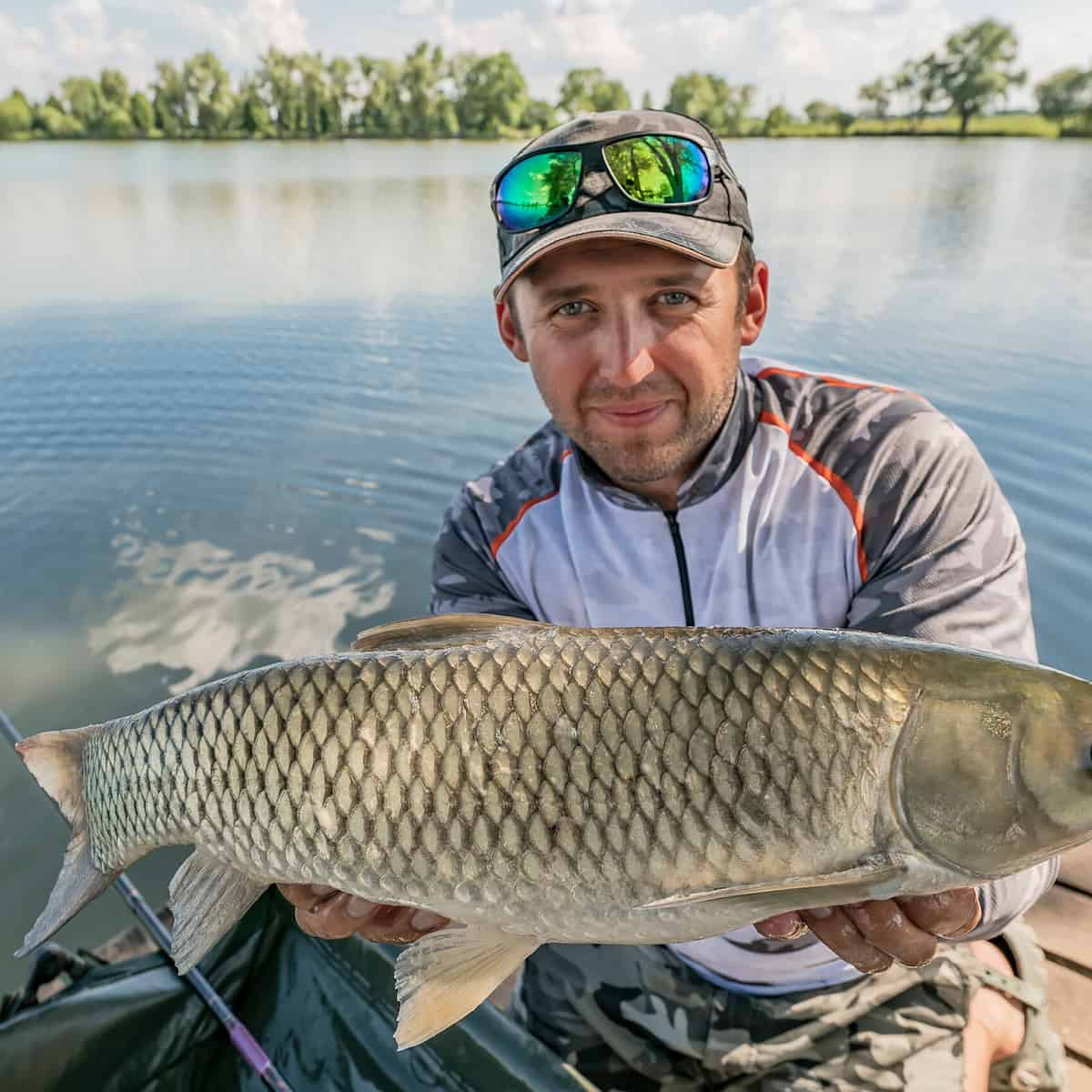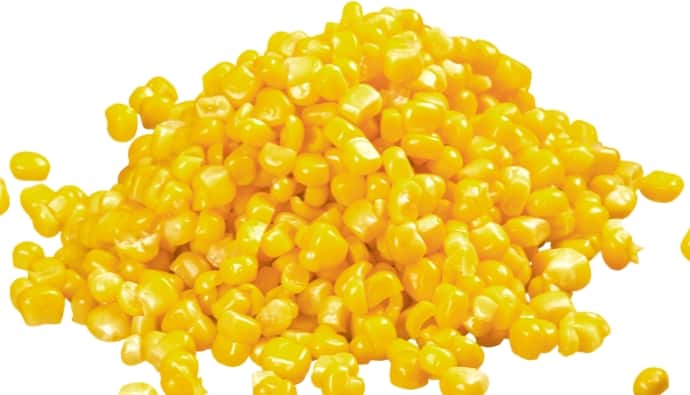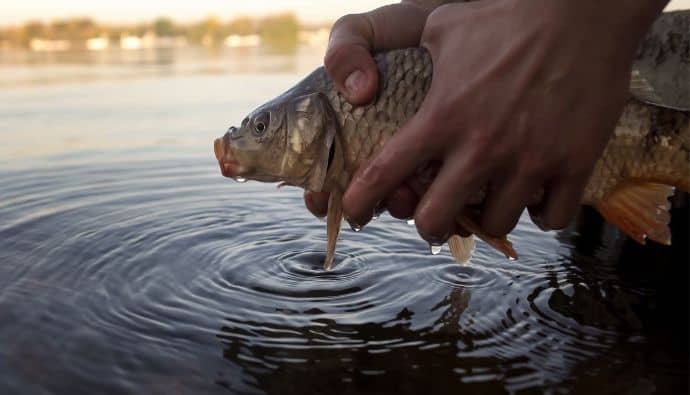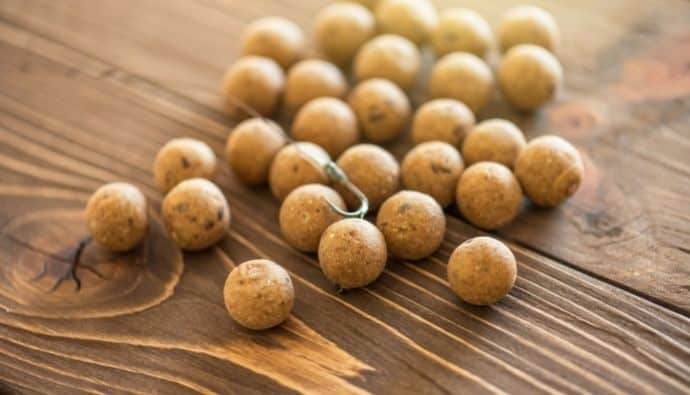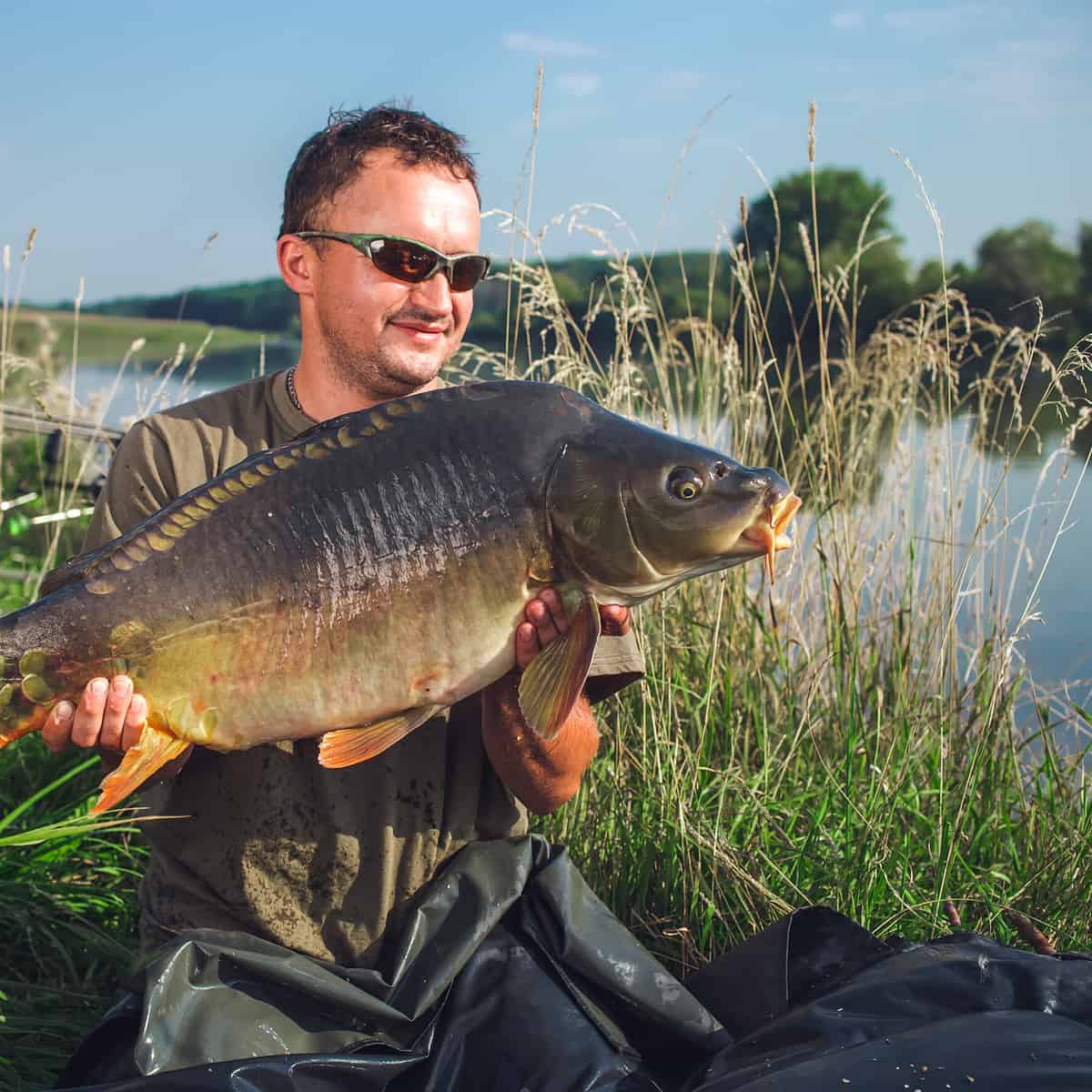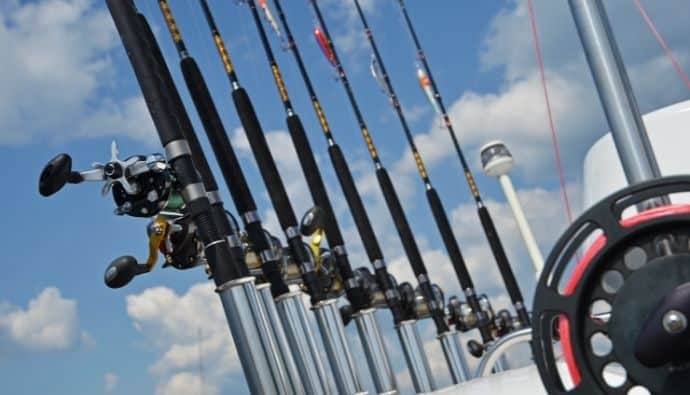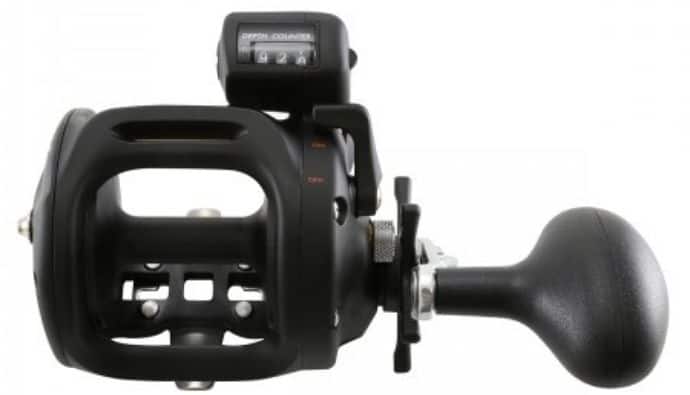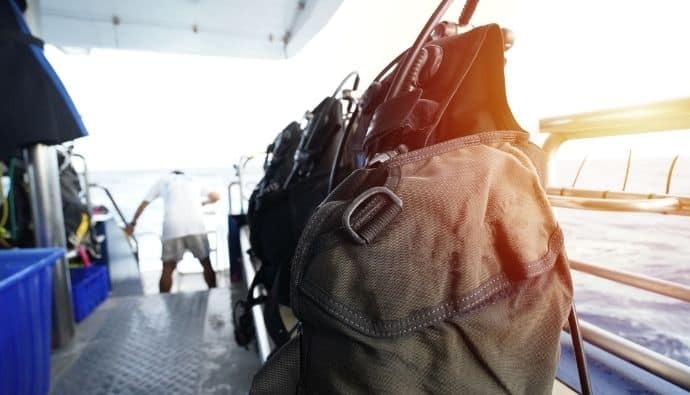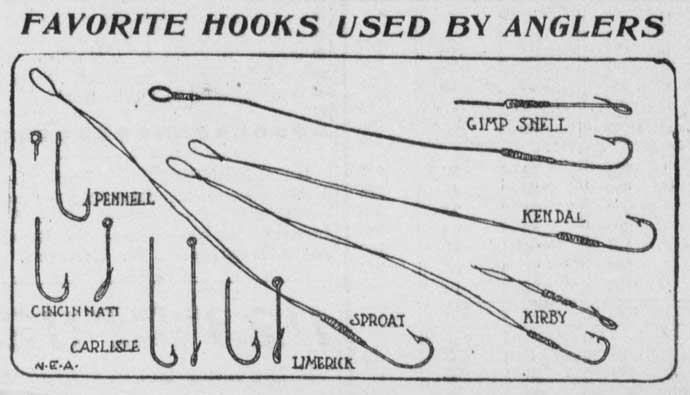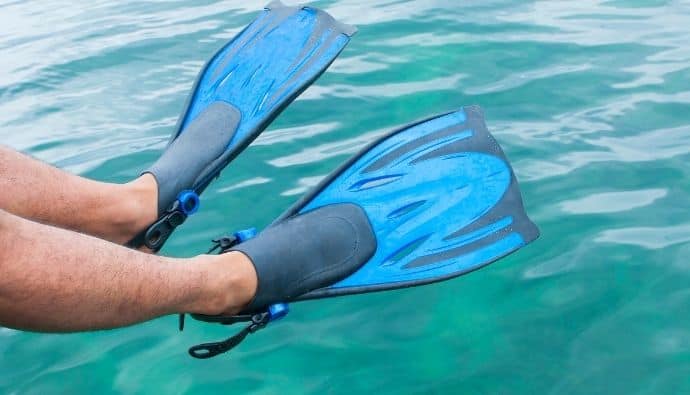The right fishing hook is essential for a successful carp angling experience. It is safe to say that if you get your fishhook wrong, you most likely will not catch a single carp.
This guide will help you to get your carp fishing hooks right and improve your chances of catching carp trophies and even improve your personal best.
In this article, you will learn the types of carp fishing hooks and which is best for catching carp. You will also learn how to choose the best carp fishing hooks.
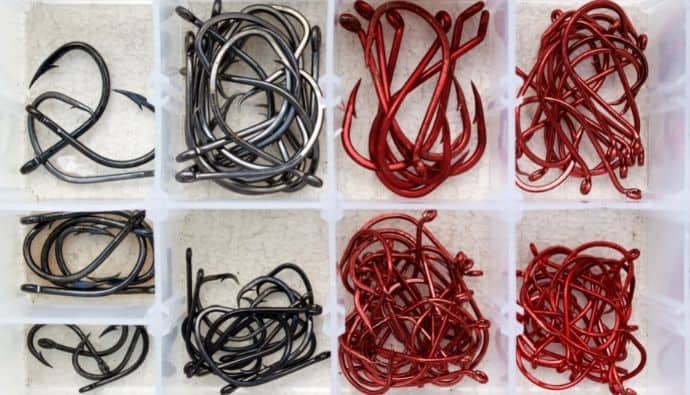
Best Hooks for Carp Fishing
An essential factor carp fishers have to consider is the kind of carp fishing hooks to use. There are different types of carp hooks for catching carp but they are not the best for all fishers and styles.
This chapter explores the different fish hooks so you know which one to buy. If you are not sure which fish hook to get or if you practice different styles, you can get several fishing hook types and simply pick which is best for your outing.
Barbed Hook
Barbs are great for securing the carp on the line. Some fishers argue that barbed hooks are merciless on the carp. However, many carp anglers who favor barbed hooks argue that a fishing hook with barbs moves a lot and this injures the fish.
Other anglers point out that although a hook with barbs holds the fish securely, it is difficult to remove it from the fish’s mouth. And if the line happens to break, it is more difficult for the fish to eject them.
Some fishers argue that a careful fisherman who knows how to remove hooks from a carp’s mouth will not hurt the fish even if they use a barbed hook. For these people, whether or not a hook has barbs, the fish will be safe or get hurt depending on the angler.
For barbed hooks, I recommend:
Barbless Hooks
It is best to use a hook with no barbs if you are fish sporting by catching carp and releasing them. With the barbless hook, you will not have to bother about re-fixing the carp’s broken teeth.
With this hook, you can avoid hurting the fish. It is also faster to get on to releasing the fish after catching them. This kind of hook makes removing the fish from the hook after they land easier.
For barbless hooks, I recommend:
Long Shank Hooks
Some hooks have long and straight shanks, making them better suited for D rigs and other bottom rigs. Carps cannot easily wriggle out of the hook and bait. Most long shank hooks are coated with Teflon which makes them less detectable by reducing their glare.
For long shank hooks, I recommend:
Curve Shank Hooks
Some hooks come with a curve on the shanks and they are better suited for carp fishing because carp find it difficult to get them out once they are in. The curved shank hook works perfectly with flexible lines.
For curve shank hooks, I recommend:
Stiff Rigger Hooks
These kinds of hooks have obvious out-turned eyes and they work well with carp fishing rigs like chod rigs. This hook is the best for fluorocarbon lines.
For stiff rigger hooks, I recommend:
Wide Gape Hooks
If you have your eyes on big fish, this is one of the best carp fishing hooks to consider getting. They are versatile and capable of holding the bottom and buoyant baits.
This hook is great for securing big carp as they try to wriggle away. They are great for big and small baits, unlike narrow gape hooks that are suitable for smaller baits.
For wide gape hooks, I recommend:
Guides for Buying the Best Fishing Hook
Even if you have great reels and rods, you will still need a great fish hook to make great catches. It is better to know this beforehand because if you were to learn this from the expert, it would have been a bad expert, one involving having to catch at all.
If you have learned this from experience, then you would want to avoid that experience from repeating itself. This is why newbies and experienced fishers need this guide. Here are some guides to help you
Best Hook Sizes
It is better to go for smaller hooks than bigger hooks. This is because while big hooks will help you catch big carp, small hooks will help you catch big carp, as well as small ones. With smaller hooks with smaller hook points, you will have better control of your baits and maneuverings.
Smaller hooks with small hook points are better for baits of all sizes. It is always profitable to pick a hook that is perfect for your baits. For instance, if your hook is too big, it might tear through the baits and make them less apt in catching carp.
If the bait is broken, it might dissolve in the water if the carp do not eat them on time. Smaller hooks can fit into baits of any size and the baits will still be intact.
Best Hook Shape
The kind of hook shape you get depends on your kind of fishing, whether it is bottom fishing or float fishing. It also depends on the kind of bait you are using for carp fishing. You need a hook that secures your baits intact for the carp to eat.
You also need a hook that will not only catch the fish the moment it eats your bait, but will also secure the fish to the line. Furthermore, you need a hook that is easy to remove from the fish when it lands.
To achieve the best results, a circular hook is better. If you are into bottom fishing, this kind of hook is better for you. If you are into other kind of fish caught, you can use a hook that suits you best.
Wide gape hooks are perfect for a wide variety of baits. Barbed hooks are great for securing the bait if you mount them in the hook’s shank. Finer wired hooks will make the baits look like natural food to the carp.
Common Questions on Carp Fishing Hooks
Fishers have questions regarding hooks for carping. Answering these questions can make a huge difference in an angler’s outing. This article answers some questions to further provide a better guide for carp fishers. Here are some common and their answers:
Both hooks with bars and those without bars are great but the one you use can depend on what is permitted in the area. Some lakes permit only barbless hooks. Also, it depends on which one you can use better without endangering the carp’s life.
The simple answer is yes. Carp are clever and can make out a hook. This is why fishers are advised to camouflage their hooks and also reduce their glare as much as possible.
You can sharpen your hook with a sharpening stone. You will need a handheld hook vice to give you a firm grip. Ensure the hook point is sharp.
Conclusion
A major part of successful carp angling depends on your fishing equipment and your hooks are important. The best hook for carp fishing depends on the fishery rules and what you can use without harming the fish when taking the hook out of the carp’s lip. There are different kinds of hooks like wide gape hooks, circle hooks, stiff rigger hooks, and so on.
The shape and size of a hook will determine if it is suitable for you or not. Wide gape hooks are versatile and suitable for buoyant and bottom baits. Ensure to pick good quality hooks that serve you better. A sharp and good hook is essential for a successful outing. It helps to sharpen your hook and ensure that the hook point is ready for the task.



 Facebook
Facebook YouTube
YouTube